- Home
- Brand, Max
Trailin Page 10
Trailin Read online
Page 10
"I've an idea," said the Easterner calmly, "that I owe my life to you,
Mr. Nash."
"Let that drop," answered the other.
"A quarter of an inch lower," said the girl, who was examining the wound, "and Butch would have kissed the world good-bye."
Not till then did the full horror of the thing dawn on Bard. The girl was no more excited than one of her Eastern cousins would have been over a game of bridge, and the man in the most matter-of-fact manner, was slipping another cartridge into the cylinder of the revolver, which he then restored to the holster.
It still seemed incredible that the man could have drawn his gun and fired it in that flash of time. He recalled his adventure with Butch earlier that evening and with Sandy Ferguson before; for the first time he realized what he had done and a cold horror possessed him like the man who has nerves to walk the tight rope across the chasm and faints when he looks back on the gorge from the safety of the other side. The girl took command.
"Steve, run down to the marshal's office; Deputy Glendin is there."
She took the wet cloth and made a deft bandage for the head of Conklin. With his shaggy hair covered, and all his face sagging with lines of weariness, the gun-fighter seemed no more than a middle-aged man asleep, worn out by trouble.
"Is there a doctor?" asked Bard anxiously.
"That ain't a case for a doctor—look here; you're in a blue faint. What is the matter?"
"I don't know; I'm thinking of that quarter of an inch which would have meant the difference to poor Conklin."
"'Poor' Conklin? Why, you fish, he was sneakin' in here to try his hand on you. He found out he couldn't get his gang into town, so he slipped in by himself. He'll get ten years for this—and a thousand if they hold him up for the other things he's done."
"I know—and this fellow Nash was as quiet as the strike of a snake. If he'd been a fraction of a second slower I might be where Conklin is now. I'll never forget Nash for this."
She said pointedly: "No, he's a bad one to forget; keep an eye on him.
You spoke of a snake—that's how smooth Steve is."
"Remember your own motto, Miss Fortune. He saved my life; therefore I must trust him."
She answered sullenly: "You're your own boss."
"What's wrong with Nash?"
"Find out for yourself."
"Are all these fellows something other than they seem?"
"What about yourself?"
"How do you mean that?"
"What trail are you on, Bard? Don't look so innocent. Oh, I seen you was after something a long time ago."
"I am. After excitement, you know."
"Ain't you finding enough?"
"I've got two things ahead of me."
"Well?"
"This trip, and when I come back I think making love to you would be more exciting than gun-plays."
They regarded each other with bantering smiles.
"A tenderfoot like you make love to me? That would be exciting, all right, if it wasn't so funny."
"As for the competition," he said serenely, "that would be simply a good background."
"Hate yourself, don't you, Bard?" she grinned.
"The rest of these boys are all very well, but they don't see that what you want is the velvet touch."
"What's that?"
She was as frankly curious as some boy hearing a new game described.
"You've only been loved in one way. These rough-handed fellows come in and throw an arm around you and ask you to marry them; isn't that it? What you really need, is an old, simple, but very effective method."
Though her eyes were shining, she yawned.
"It don't interest me, Bard."
"On the contrary, you're getting quite excited."
"So does a horse before it gets ready to buck."
"Exactly. If I thought it would be easy I wouldn't be tempted."
"Well, if you like fighting you've sure mapped out a nice sizeable quarrel with me, Bud."
"Good. I'm certainly coming back to Eldara. Now about this method of mine—"
"Throwing your cards on the table, eh? What you got, Bard, a royal flush?"
"Right again. It's a very simple method but you couldn't beat it."
"Bud, you ain't half old enough to kid me."
"What you need," he persisted calmly, "is someone who would sit down and simply talk good, plain English to you."
"Let 'er go."
"In the first place I will call attention to your method of dressing."
"Anything wrong with it?"
"I knew you'd be interested."
She slipped into a chair and sat cross-legged in it, her elbows on her knees and her chin cupped in both her hands.
"Sure I'm interested. If there's a new way fixin' ham-and, serve it out."
"I would begin," he went on judiciously, "by saying that you dressed in five minutes in the dark."
"It's generally dark at 5 a.m.," she admitted.
"You look, on the whole, as if you'd fallen into your clothes."
The wounded man stirred and groaned faintly.
She called: "Lie down, Butch; I'm busy. Go on, Bard."
"If you keep a mirror it's a wall decoration—not for personal use."
"Maybe this is an old method, Bard; but around this place it'd be a quick way of gettin' shot."
"Angry?"
"You'd peeve a mule."
"This was only an introduction. The next thing is to sit close beside you and shift the lamp so that the light would shine on your face; then take your hand—"
He suited his action to his word.
"Let go my hand, Bard. It's like the rest of me—not a decoration but for use."
"Afraid of me, Sally?"
"Not of a regiment like you."
"Then of my method?"
"Go on; I'm game."
"But this is all there is to it."
"What d'you mean?"
"Just what I say. Having observed that you haven't set off any of your advantages, I will sit here and look into your face in silence, which is as much as to say that no matter how you dress you can't spoil a very excellent figure, Sally. I suppose you've heard that before?"
"Lots of times," she muttered.
"But you wouldn't hear it from me. All I would do would be to sit and stare and let you imagine what I'm thinking. And you'd begin to see that in spite of the way you do your hair you can't spoil its colour nor its texture."
He raised his other hand and touched it.
"Like silk, Sally."
He studied her closely, noting the flush which began to touch her cheeks.
"Part of the game is for you to keep looking me in the eye."
"Well, I'll be—Go on, I'm game."
"Is it hard to sit like this—silently? Do I do it badly?"
"No, you show lots of practice. How many have you tried this method on,
Bard?"
He made a vague gesture and then, smiling: "Millions, Sally, and they all liked it."
"So do I."
And they laughed together, and grew serious at the same instant.
"All silence—like this?" she queried.
"No; after a while I would say: 'You are beautiful.'"
"You don't get a blue ribbon for that, Bard."
"Not for the words, but the way they're said, which shows I mean them."
She blinked as though to clear her eyes and then met his stare again.
"You know you are beautiful, Sally."
"With a pug nose—freckles—and all that?"
"Just a tip-tilt in the nose, Sally. Why, it's charming. And you have everything else—young, strong, graceful, clear."
"What d'you mean by that?"
"Clear? Fresh and colourful like the sunset over the desert. Do you understand?"
Her eyes went down to consider.
"I s'pose I do."
"With a touch of awe in it, because the silence and the night are coming, and the stars wa
lk down, one by one—one by one. And the wind is low, soft, musical, whispering, as you do now—What if this were not a game of suppose, Sally?"
She wrenched herself suddenly away, rising.
"I'm tired of supposing!" she cried.
"Then we'll call it all real. What of that?"
That colour was unmistakably high now; it ran down from her cheeks and even stained the pure white of the throat where the flap of the shirt was open. He was excited as a hunter who has tracked some new and dangerous animal and at last driven it to bay, holding his gun poised, and not knowing whether or not it will prove vulnerable.
He stepped close, eager, prepared for any wild burst of temper; but she let him take her hands, let him draw her close, bend back her head; hold her closer still, till the warmth and softness of her body reached him, but when his lips came close she said quietly: "Are you a rotter, Bard?"
He stiffened and the smile went out on his lips. He stepped back.
She repeated: "Are you a rotter?"
He raised the one hand which he still retained and touched it to his lips.
"I am very sorry," said Anthony, "will you forgive me?"
And with her eyes large and grave upon him she answered: "I wonder if I can!"
Butch Conklin looked up, raising his bandaged head slowly, like a white flag of truce, with a stain of red growing through the cloth. He stared at the two, raised a hand to his head as though to rub away the dream, found a pain too real for a dream, and then, like a crab which has grown almost too old to walk, waddled on hands and knees, slowly, from the room and melted silently into the dark beyond.
CHAPTER XVIII
FOOLISH HABITS
A sharp noise of running feet leaped from the dust of the street and clattered through the doorway; the two turned. A swarthy man, broad of shoulder, was the first, and afterward appeared Nash.
"Conklin?" called Deputy Glendin, and swept the room with his startled glance. "Where's Conklin?"
He was not there; only a red stain remained on the floor to show where he had lain.
"Where's Conklin?" called Nash.
"I'm afraid," whispered Bard quickly to the girl, "that it was more than a game of suppose."
He said easily to the other two: "He had enough. His share of trouble came to-night; I let him go."
"Young feller," growled Glendin, "you ain't been in town a long while, but I've heard a pile too much about you already. What you mean by takin' the law into your own hands?"
"Wait," said Nash, his keen eyes on the two, "I guess I understand."
"Let's have it, then."
Still the steady eyes of Nash passed from Sally Fortune to Bard and back again.
"This feller bein' a tenderfoot, he don't understand our ways; maybe he thinks the range is a bit freer than it is."
"That's the trouble," answered Glendin, "he thinks too damned much."
"And does quite a pile besides thinkin'," murmured Nash, but too low for the others to hear it.
He hesitated, and then, as if making up his mind by a great effort:
"There ain't no use blamin' him; better let it drop, Glendin."
"Nothin' else to do, Steve; but it's funny Sally let him do it."
"It is," said Nash with emphasis, "but then women is pretty funny in lots of ways. Ready to start, Bard?"
"All ready."
"S'long, Sally."
"Good-night, Miss Fortune."
"Evenin', boys. We'll be lookin' for you back in Eldara to-morrow night,
Bard."
And her eyes fixed with meaning on Nash.
"Certainly," answered the other, "my business ought not to take longer than that."
"I'll take him by the shortest cut," said Nash, and the two went out to their horses.
They had difficulty in riding the trail side by side, for though the roan was somewhat rested by the delay at Eldara it was impossible to keep him up with Bard's prancing piebald, which sidestepped at every shadow. Yet the tenderfoot never allowed his mount to pass entirely ahead of the roan, but kept checking him back hard, turning toward Nash with an apology each time he surged ahead. It might have been merely that he did not wish to precede the cowpuncher on a trail which he did not know. It might have been something quite other than this which made him consistently keep to the rear; Nash felt certain that the second possibility was the truth.
In that case his work would be doubly hard. From all that he had seen the man was dangerous—the image of the tame puma returned to him again and again. He could not see him plainly through the dark of the night, but he caught the sway of the body and recognized a perfect horsemanship, not a Western style of riding, but a good one no matter where it was learned. He rode as if he were sewed to the back of the horse, and, as old William Drew had suggested, he probably did other things up to the same standard. It would have been hard to fulfil his promise to Drew under any circumstances with such a man as this; but with Bard apparently forewarned and suspicious the thing became almost impossible.
Almost, but not entirely so. He set himself calmly to the problem; on the horn of his saddle the lariat hung loose; if the Easterner should turn his back for a single instant during all the time they were together old Drew should not be disappointed, and one thousand cash would be deposited for the mutual interest of Sally Fortune and himself. That is to say, if Sally would consent to become interested. To the silent persuasion of money, however, Nash trusted many things.
The roan jogged sullenly ahead, giving all the strength of his gallant, ugly body to the work; the piebald mustang pranced like a dancing master beside and behind with a continual jingling of the tossed bridle.
The masters were to a degree like the horses they rode, for Nash kept steadily leaning to the front, his bulldog jaw thrusting out; and Bard was forever shifting in the saddle, settling his hat, humming a tune, whistling, talking to the piebald, or asking idle questions of the things they passed, like a boy starting out for a vacation. So they reached the old house of which Nash had spoken—a mere, shapeless, black heap huddling through the night.
In the shed to the rear they tied the horses and unsaddled. In the single room of the shanty, afterward, Nash lighted a candle, which he produced from his pack, placed it in the centre of the floor, and they unrolled their blankets on the two bunks which were built against the wall on either side of the narrow apartment.
Truly it was a crazy shack—such a building as two men, having the materials at hand, might put together in a single day. It was hardly based on a foundation, but rather set on the slope side of the hill, and accordingly had settled down on the lower side toward the door. Not an old place, but the wind had pried and the rain warped generous cracks between the boards through which the rising storm whistled and sang and through which the chill mist of the coming rain cut at them.
Now and then a feeling came to Anthony that the gale might lift the tottering old shack and roll it on down the hillside to the floor of the valley, for it rocked and swayed under the breath of the storm. In a way it was as if the night was giving a loud voice to the silent struggle of the two men, who continued pleasant, careless with each other.
But when Nash stepped across the room behind Bard, the latter turned and was busy with the folding of his blankets at the foot of his bunk, his face toward the cowpuncher and when Bard, slipping off his belt, fumbled at his holster, Nash was instantly busy with the cleaning of his own gun.
The cattleman, having removed his boots, his hat, and his belt, was ready for bed, and slipped his legs under the blankets. He stooped and picked up his lariat, which lay coiled on the floor beside him.
"People gets into foolish habits on the range," he said, thumbing the strong rope curiously, and so doing, spreading out the noose.
"Yes?" smiled Bard, and he also sat up in his bunk.
"It's like a kid. Give him a new toy and he wants to take it to bed with him. Ever notice?"
"Surely."
"That's the way with me. When I go t
o bed nothin' matters with me except that I have my lariat around. I generally like to have it hangin' on a nail at the head of my bunk. The fellers always laugh at me, but I can't help it; makes me feel more at home."
And with that, still smiling at his own folly in a rather shamefaced way, he turned in the blankets and dropped the big coil of the lariat over a nail which projected from the boards just over the head of his bunk. The noose was outermost and could be disengaged from the nail by a single twist of the cowpuncher's hand as he lay passive in the bunk.
On this noose Bard cast a curious eye. To cityfolk a piece of rope is a harmless thing with which one may make a trunk secure or on occasion construct a clothes line on the roof of the apartment building, or in the kitchen on rainy Mondays.
To a sailor the rope is nothing and everything at once. Give a seaman even a piece of string and he will amuse himself all evening making lashings and knots. A piece of rope calls up in his mind the stout lines which hold the masts steady and the yards true in the gale, the comfortable cable which moors the ship at the end of the dreary voyage, and a thousand things between.
To the Westerner a rope is a different thing. It is not so much a useful material as a weapon. An Italian, fighting man to man, would choose a knife; a Westerner would take in preference that same harmless piece of rope. In his hands it takes on life, it gains a strange and sinister quality. One instant it lies passive, or slowly whirled in a careless circle—the next its noose darts out like the head of a striking cobra, the coil falls and fastens, and then it draws tighter and tighter, remorselessly as a boa constrictor, paralyzing life.
Something of all this went through the mind of Bard as he lay watching the limp noose of the cowboy's lariat, and then he nodded smiling.
"I suppose that seems an odd habit to some men, but I sympathize with it. I have it myself, in fact. And whenever I'm out in the wilds and carry a gun I like to have it under my head when I sleep. That's even queerer than your fancy, isn't it?"
And he slipped his revolver under the blankets at the head of his bunk.
CHAPTER XIX

 Alcatraz
Alcatraz the Long, Long Trail (1923)
the Long, Long Trail (1923)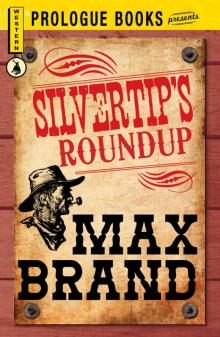 Silvertip's Roundup
Silvertip's Roundup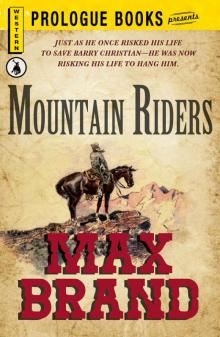 Mountain Riders
Mountain Riders Silvertip (1942)
Silvertip (1942)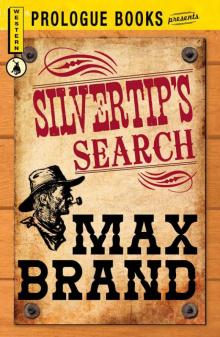 Silvertip's Search
Silvertip's Search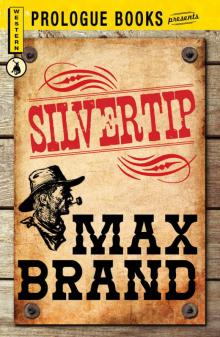 Silvertip
Silvertip Bull Hunter
Bull Hunter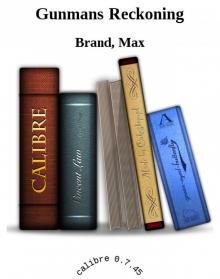 Gunmans Reckoning
Gunmans Reckoning The Seventh Man
The Seventh Man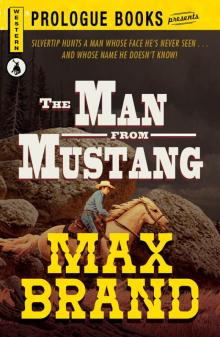 Man From Mustang
Man From Mustang Riders of the Silences
Riders of the Silences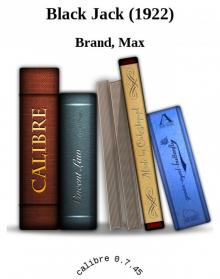 Black Jack (1922)
Black Jack (1922) Way of the Lawless
Way of the Lawless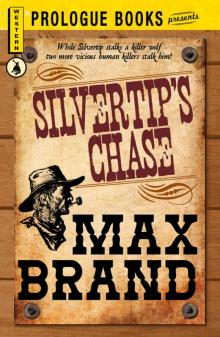 Silvertip's Chase
Silvertip's Chase Trailin
Trailin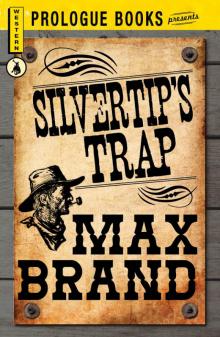 Silvertip's Trap
Silvertip's Trap Ronicky Doone (1921)
Ronicky Doone (1921) The Night Horseman
The Night Horseman the Garden Of Eden (1963)
the Garden Of Eden (1963)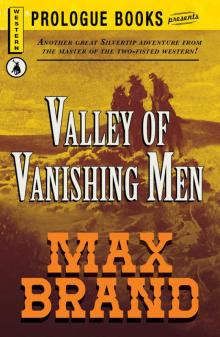 Valley of the Vanishing Men
Valley of the Vanishing Men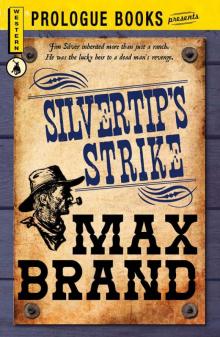 Silvertip's Strike
Silvertip's Strike Black Jack
Black Jack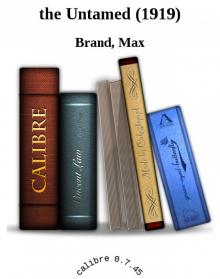 the Untamed (1919)
the Untamed (1919) Way Of the Lawless (1921)
Way Of the Lawless (1921) The Untamed
The Untamed